- Home
- Cynthia Voigt
The Tale of Oriel Page 21
The Tale of Oriel Read online
Page 21
Oriel was too tired to ask, too stubborn to speak. When they were alone he asked Griff, over his shoulder, “Are we sentries?”
“I can’t stay awake, Oriel,” Griff answered, in the voice of a man at the end of hope.
“Then sleep, as you can. I’ll watch. Later, I’ll wake you and you can watch while I sleep. As we have done before, Griff.”
Thus they passed the night, sleeping and watching over one another. Sometime in the night, Oriel heard a distant howling sound, and understood that they were watching against dangers out of the darkness, and that there was especial danger of wolves.
Thus they passed also the next days and nights. They moved always northward, and fed off what the Wolfers stole from the farmsteads they passed. They ate on the run, and lit only small fires against the bitter cold of night. Each night, the captives were staked out around the Wolfer camp, to give warning.
Oriel and Griff were fed enough to keep them alive. They wore furs over their shoulders and furs around their feet and legs. They had been toughened by their summer of captivity. The other four were not so fortunate, although each huddled within his own fur. The others wore leather boots and often stumbled, and fell, and had to be dragged back up onto their feet.
The first pair of Wolfguards was lost because of exhaustion, and the inability to understand that two bodies huddled together under two furs would be warmer than two men, each in his own fur. This was after snows had fallen, and one of the men’s hands had turned black with frostbite, and had been cut off by Rulgh’s sword, so the smell of blood called the wolves down on them. When it happened, it was Griff’s turn to sleep; Oriel heard cries from across the circle of Wolfers. Oriel would have thought the cries would waken Griff, who leaned against him for warmth and support; but Griff slept through. Oriel listened—as the Wolfers awoke and considered what they needed to do for their own safety, as the cries became more desperate, beating like the wings of birds against the barren hillsides, as silence fell again.
The mountains came nearer and the hillsides grew steeper, and the little streams had frozen where they ran. There came a grey, low-clouded day, when the band came upon a farmstead nestled in a hollow, with snow pulled up around it like bedclothes.
The four captives were left where they had fallen in the snow, while the Wolfers attacked. Griff dozed off, but Oriel could not. The sounds of what little resistance the householders offered seemed to come from far away, and he looked about himself. There were few trees and the mountains took up much of the sky here. The clouds pressed down upon him and the air was thin in his mouth. The wind came howling down from the mountains. He wondered how much longer he would live, and if he would bring Rulgh down before he died. He wondered what kind of farm this barren land could support.
They were dragged to their feet and driven into a gated yard, under a rising wind. Rulgh and his band were the only occupants now. The farm was provisioned against winter, and so the blizzard that came down over them found them safely housed.
The Wolfers’ way of getting through was to eat and drink themselves into a stupor, and then to sleep until the stupor wore off so that they could eat and drink again. The four captives served them, and cleaned up after them. Outside, the wind howled.
Rulgh acknowledged to the band, there, that they were going to the Kingdom, as Malke had ordered. When he named it, the Wolfers stirred unhappily where they sat. They demanded more ale, and wouldn’t look at Rulgh. Oriel listened attentively, and found his understanding much increased, as if his ears had suddenly been cleared and he could now hear the Wolfers’ language.
Rulgh spoke to the men of golden streets, and of rich stews, and of breads baked with nuts and fruits. In the Kingdom, Rulgh said, all men drank ale as freely as if it were water, and they drank wine as if it were no more costly than ale. And the women, Rulgh said, were dark-haired, and warm, not like the yellow-haired ice-women the Wolfers had known.
One man answered him: They were being sent to their deaths, and were fools to obey. No man had ever crossed the mountains and returned to tell the way. “It’s not,” the man said, “that I mind dying. But I would like to face death equally, and know his name.”
The others merely called for more drink.
WHEN THE STORM HAD BLOWN out, and the snow had settled, the band moved on. Now they wore wooden boards strapped to their feet, narrow boards they had carved to rounded tips. The boards were as long as their arms, and rubbed smooth, so they could move as much on top of the snow as through it. Oriel and Griff were clumsy with these extended feet for a day or two, until they learned how to imitate the Wolfers’ gliding movements. Without the boards, they would have sunk down into snow as high as their waists and been unable to move. They would have been trapped in the snow.
The captives were laden, now, with stores. They trailed behind the Wolfers up long sloping hillsides. Wolves followed the band by day and encircled them by night. When Oriel stood Wolfguard, with Griff leaning sleeping against him, he could see the eyes of the wolves, glowing red. He heard the quarrels of the other pair of captives as they pinched and poked one another to be sure both were awake and on guard. The captives lay down to sleep only at the turnings of the day, from light to dark, dark to light.
The trek was long, and it was many successive nights that Oriel and Griff stood Wolfguard, each trusting the other to wake while he slept. They were too exhausted by the endless uphill trudges, by the search for shelter as the brief day slid into the long night, by unpacking fuel and building tiny fires, too exhausted to speak to one another more than the waking words, “It’s my turn to sleep.” They needed no talk to perform their tasks, and if they had, Oriel could not have offered it. The air was thin and icy on his skin and lips. His breath feathered out before him, as did Griff’s.
The Wolfers, who carried nothing but their weapons, because Wolfers weren’t beasts of burden, and who were familiar with the use of the boards, moved more easily, but still the long trek wore them down. The stores were almost entirely gone and the second pair of captives had been dragged off, their screams mingling with the wolves’ snarling, before the band came to another fenced farmyard, high up against a hillside that rose into the shoulder of a mountain. No smoke rose from the chimney.
“Blizzard,” Rulgh announced confidently. In the time they had been traveling, Rulgh’s beard had grown in roughly all over his cheeks, and his voice had grown rough-edged, and his long hair hung down ragged and filled with ice-droppings. Griff, too, looked rough, by which Oriel knew that he himself looked as much bear as man.
The gate stood open, and they crowded into the undefended yard. The door to the house stood open to the cold. It was as if the inhabitants had risen from their meal, with only half of it eaten, and fled the house. But where would they have gone? Rulgh had no question about why they had fled.
Neither had Oriel, and he had just enough strength left to be glad that the inhabitants of this vast northern land had some means of warning one another when danger ranged, before he and Griff were set to work, while the Wolfers fell onto the floor by the fire and slept.
The Wolfers slept so deeply that Griff could ask Oriel, “If we ran away?”
Outside, in that white wilderness, Oriel and Griff would have no chance to live. Oriel couldn’t find the words inside his head to push out through his mouth, but Griff understood. He sat down beside Oriel and closed his eyes, to sleep until their masters called them awake.
Before the blizzard lifted there was rest, and food, days and nights of howling winds, and the Wolfers sleeping like winter-fat animals in their caves, or waking to quarrel. As soon as the sky cleared they moved on, the boards once again strapped to their feet.
The mountains rose like a wall, high and white and sharp.
At night the wolves crowded closer, bolder—Oriel was wakened by Griff to drive them off with the boards.
It was only Rulgh’s voice that made it possible to continue moving forward, only knowing that Rulgh would jab the point
of a sword into his back—cutting through the fur he wore wrapped around his body—or into Griff’s back, if they faltered—
He wondered if they had moved at all, some days, so slowly did they move up the mountain’s side—
Only the promise of more pain if he halted kept him moving.
They followed a shallow ravine between two tall hills, until the ravine became broad enough for two or three abreast, moving swiftly now with the boards along level ground. When Oriel looked up, the mountains rose all around him.
They were trapped among the mountains.
Oriel didn’t even know what direction would lead them out.
He didn’t think Rulgh knew, either, except that there was a plume of smoke far ahead. Oriel pushed his legs forward, pushing the boards through the snow. Beside him, Griff breathed.
Downhill, he thought, downhill would be out. They were moving steadily uphill, and he didn’t know when he had last seen a tree. Bare white-grey rocks, whole hillsides of only rock, where the wind had blown all the snow away. White fields and hillsides of snow, and a white-blue sky above.
Oriel couldn’t hear his own breathing.
When they came to it, the smoke seemed to rise out of a tiny hill of snow, up against bare rock. The Wolfers pulled at the hillside with their hands, and a man crawled out—bareheaded, wearing cloth; his face was pale but his eyes were dark under thick white eyebrows, and his long white hair blew in the wind. He beckoned them to enter the mountainside, and he held back a doorway made of skin.
The ten Wolfers entered and when they were safe inside Oriel and Griff could follow. They leaned the boards against the stone. The man urged them all to sit close around his fire. He gave them thick hot food. He rubbed fat into their feet and hands and faces. The firelight moved over the one room, like sun running over water.
How long he slept, Oriel didn’t know. There was a time when his fingers and toes ached, the bones of his body pathways of pain; and he thought he heard men moaning.
Oriel knew it wasn’t Griff’s voice. So he could sleep again, since when he slept the pain of his bones went to a distant place. From that distant place, the pain had trouble reaching him.
He awoke to see Griff’s face, shadowy in firelight. Griff looked as wild as a Wolfer, a stranger’s face. Except for his eyes.
Oriel struggled to sit up. Sitting, he saw the white-haired man feeding someone across the small room, on the other side of the fire. “He wakes,” Griff said, and the white-haired mountain man answered, “Good. Do you want to try him with some porridge?”
It was not until he had eaten, and slept, and wakened to eat again that Oriel realized what he had heard: his own language.
RULGH LIVED, AND THREE OF the others. The rest were gone, as if they had never been. The mountain man’s room was in fact a cave that ran back into the mountainside for forty or fifty paces before it ended at a damp stone wall. The man had filled the back of the cave with branches of wood and great mounds of ground stuff—it looked like a mixture of leaves and nuts. This, cooked with melted snow, made his food. The wood burned for his fire. The mountain man had supplies to keep himself, and guests, too.
When Rulgh could speak, he demanded to know who this man was. The mountain man understood his question, but had no words to answer it. “Why does it matter who I am?” he asked Oriel and Griff. They couldn’t tell him. “Come,” the man said.
He led them outside, where the sun reflected off fields of snow, to warm the air. The white peaks rose all around them. In the bright light, the mountain man’s eyes were blue, with flecks of brown in them, like bits of ice floating down a river in the spring melt. “Ask him where he is taking you,” the man said to Oriel.
“To the Kingdom,” Rulgh answered.
“My homeland,” the mountain man said. Oriel put this into Rulgh’s language.
Rulgh demanded, “Where is the pass?”
“Why do you go to the Kingdom? Ask him,” the mountain man said.
Rulgh took a breath to answer but was interrupted by a sound that filled the air, as if somewhere nearby a giant had been punched in the belly and expelled a bellyful of air, “Mhhuummphh.” Or perhaps, Oriel thought, looking around to find the source of the sound, it was as if the mountain itself had belched, gently, like a girl at a feast.
The mountain man didn’t seem alarmed, but still Oriel moved next to Griff, for better defense should they need to defend themselves. Rulgh looked around, at peaks and sky, and almost as if in answer to the question he hadn’t asked, the sound came again, “Mhhuummphh.”
“What’s happ—?” the Wolfers asked.
“Hush,” the mountain man said. “Listen.”
Oriel signaled Rulgh and the others to quiet.
There was no sound in the great icy silence of the mountains. They waited. Then Oriel could hear a distant waterfall, rumbling.
But no water could fall, not in these frozen wastes.
The noise was gone so quickly, he couldn’t be sure he had really heard it.
The mountain man waited for a long soundless time. Then he spoke again. “It’s over now, the avalanche.”
“Va-lanish?” Rulgh echoed.
The mountain man shrugged. “The snow falls over the hillside, like a landslide. If you are caught, and if you aren’t smashed, and you make room to breathe before it freezes over you, and settles down on you, and if you dig your way upward and you are lucky, if you are a lucky man, then you live.”
Oriel started to translate, but Rulgh waved him to silence. “The pass,” Rulgh insisted. “The Kingdom.”
“Who are you, to him?” the man asked Oriel.
“We are his captives,” Oriel said.
“You don’t have the look of captives. You wouldn’t be captives in the Kingdom. Mightn’t they be servants, though?” he asked, and listened to his own question as if it had been spoken by another.
“He knows the pass?” Rulgh demanded.
“Now we go inside, to eat, and then sleep. Tell your man that,” the mountain man said to Oriel.
Rulgh didn’t want to cooperate, but he gave in, grudgingly, with an eye on the white disk of the sun, which was sinking towards the tallest of three spiked peaks. “All right,” he said.
“The pass lies there, just below the sun,” the mountain man said. Oriel told this to Rulgh. “Tell him, the sun goes through the pass every night, he goes between the middle and right peaks and into the Kingdom, where he sleeps in the arms of his beloved. For the women of the Kingdom are beautiful.”
When Oriel told Rulgh this, the Wolfer burst into harsh laughter.
“Tell him that later—he will see it—the moon comes searching for her husband, but she does not know where the pass into the Kingdom is.”
“Tewkeman,” Rulgh answered. “Brautelman.”
The mountain man turned his two-colored eyes to Rulgh and stared for so long that the Wolfer became uneasy. Still the mountain man stared at the Wolfer, until Rulgh made the sign of the horned animal, to protect himself. Finally the mountain man spoke. “Yes, I think so. Come inside, before you freeze, for if you freeze here there is no other person but me to find you, and save you again.”
When they had dipped their fill of porridge out of the pot with their fingers, for there were neither bowls nor spoons for them, the mountain man said, as if no time had passed since his last words, “and I will only save you once.”
“Tewkeman,” Rulgh muttered, but without conviction.
“She was my sister, and she carried his child, and the soldiers came to kill her. And they killed her, as it was the Lady Earl’s wish and order, and so I wanted to kill the Earl, they said so, so I had to run away, because it was the Lady Earl who should die. Not that boy. It wasn’t the boy’s wish and order. He couldn’t order, nor wish, neither, I think; for when I found him he lay there and didn’t blink or breathe, all the time I asked him for my sister.”
The man leaned his head close to Oriel’s, as if what he said now was spoken in secret
. “I came through the pass, when he rescued me, and brought me here, and he drew the mountains up behind me.”
“Who rescued you?”
“Jackaroo, he carried me along in the palm of his great hand, and set me down—so gently—so I would live safely here. Not for your profit and service!” the man cried out at Rulgh; but then he winked at the Wolfer with a friendly smile.
That decided Rulgh. Oriel could see him make up his mind. So Oriel was not surprised the next morning to have a pack strapped onto his back, filled with the mountain man’s dried porridge. Griff carried wood.
The mountain man seemed untroubled by their departure. He hung around Oriel’s neck the curled hollow horn of a mountain goat. “If you are in need, call on this. I will answer you, or I will send a mountain to your aid.”
“What now?” Rulgh demanded.
“Tell him, he knows where the pass is,” the mountain man said. Oriel told them this. They all stood outside the skin doorway, under bright sunlight. The mountain man pointed off to the east, where the sun hovered over a distant line of peaks.
“This is not what he spoke before. I believe nothing,” Rulgh muttered. “Follow me.” He moved off.
They followed, with long gliding steps on the boards. With every step, Oriel and Griff fell behind.
By midday, it was as if they had never found shelter with the mountain man. Rulgh drove all of them forward, always uphill. Oriel kept the triple peaks in his view—because he could remember them, not because he had faith in the mountain man. Also because when Rulgh’s voice called them forward, faster, unless Oriel thought of the triple peaks he would have refused to move.
Griff would refuse, if Oriel refused.
They would both die, then.
That night, as they stood guard, Oriel tried to ask Griff. “He meant an avalanche,” Oriel said. “With the horn. To call one down, if I hear . . .”
“Ah,” Griff said. His voice sounded so thick with sleep that Oriel almost didn’t tell him, but he thought that Griff also had a part in the choice, since he had a part in the danger. He had never given Griff a part in the choice before, but now he thought he had owed it to Griff.

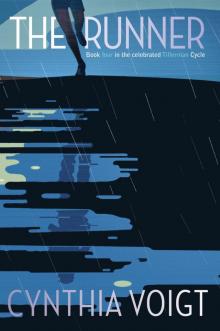 The Runner
The Runner By Any Name
By Any Name Bad Girls, Bad Girls, Whatcha Gonna Do?
Bad Girls, Bad Girls, Whatcha Gonna Do?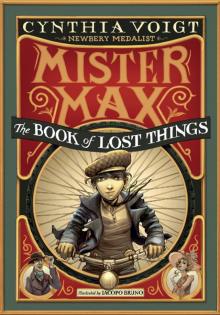 Mister Max: The Book of Lost Things: Mister Max 1
Mister Max: The Book of Lost Things: Mister Max 1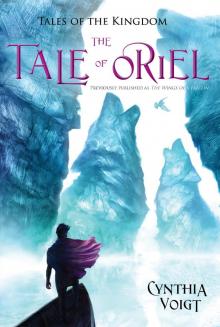 The Wings of a Falcon
The Wings of a Falcon Bad Girls in Love
Bad Girls in Love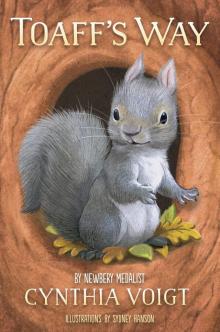 Toaff's Way
Toaff's Way Building Blocks
Building Blocks Orfe
Orfe Tell Me if the Lovers Are Losers
Tell Me if the Lovers Are Losers It's Not Easy Being Bad
It's Not Easy Being Bad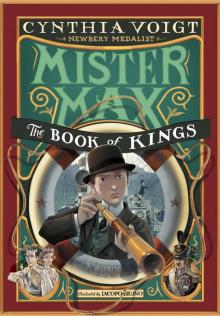 The Book of Kings
The Book of Kings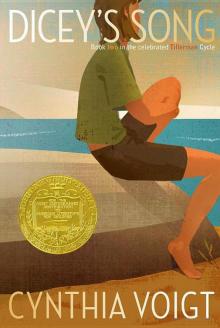 Dicey's Song
Dicey's Song A Solitary Blue
A Solitary Blue Tree by Leaf
Tree by Leaf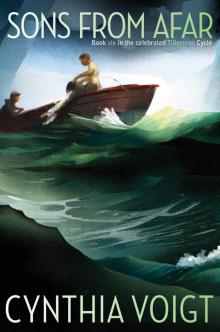 Sons From Afar
Sons From Afar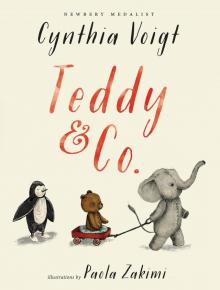 Teddy & Co.
Teddy & Co. Jackaroo
Jackaroo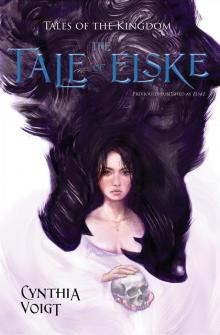 Elske
Elske Izzy, Willy-Nilly
Izzy, Willy-Nilly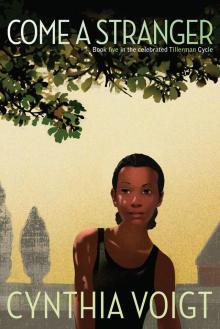 Come a Stranger
Come a Stranger Mister Max: The Book of Secrets: Mister Max 2
Mister Max: The Book of Secrets: Mister Max 2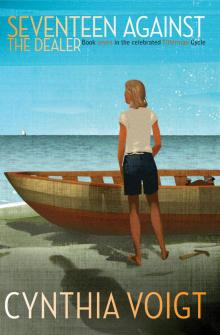 Seventeen Against the Dealer
Seventeen Against the Dealer The Callender Papers
The Callender Papers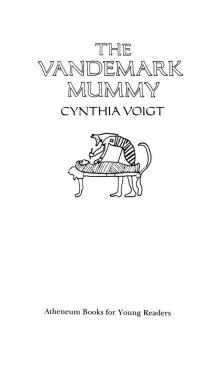 The Vandemark Mummy
The Vandemark Mummy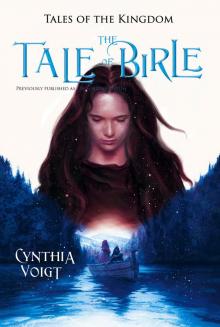 Tale of Birle
Tale of Birle Glass Mountain
Glass Mountain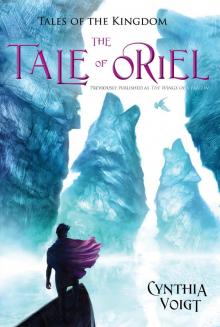 The Tale of Oriel
The Tale of Oriel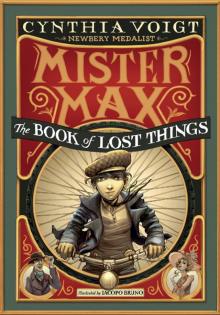 The Book of Lost Things
The Book of Lost Things The Book of Secrets
The Book of Secrets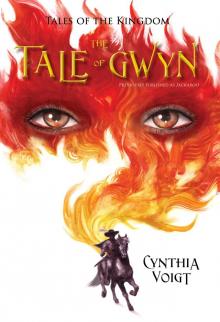 Tale of Gwyn
Tale of Gwyn